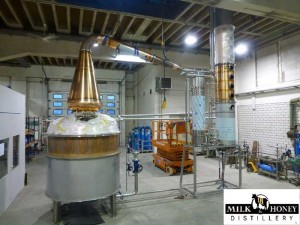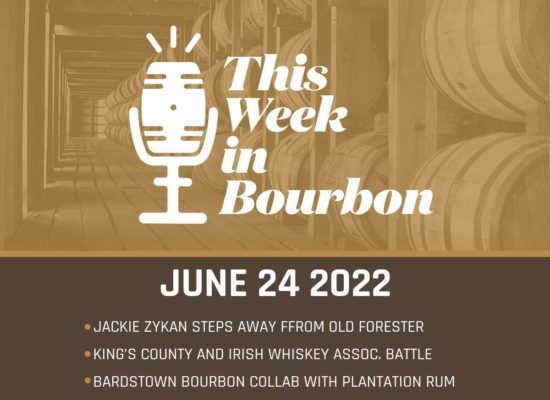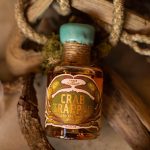 Those who profess to know about such things claim that the motto of the Purcell family inscribed on its Irish coat of arms translates from the Latin as “Success or Perish!” Likely not aware of that challenge, James “Jimmy” Purcell operated four drinking establishments in and around pre-Prohibition Grand Junction, Colorado. Purcell, shown here, epitomized the Western saloonkeeper as an astute businessman, successful in an environment where “perishing” was always a possible outcome.
Those who profess to know about such things claim that the motto of the Purcell family inscribed on its Irish coat of arms translates from the Latin as “Success or Perish!” Likely not aware of that challenge, James “Jimmy” Purcell operated four drinking establishments in and around pre-Prohibition Grand Junction, Colorado. Purcell, shown here, epitomized the Western saloonkeeper as an astute businessman, successful in an environment where “perishing” was always a possible outcome.
Born in Racine County, Wisconsin, on Christmas Day in 1858 Jimmy was scarcely out of the womb when his family moved further west to Iowa. The federal census in 1860 found the family there, living in Anamosa, a town reputedly named for a Native American princess. His father Michael’s given occupation was “laborer.” While still his late teens, Purcell moved west to Leadville, Colorado, apparently to try his hand at mining. Subsequently he moved further west to Colorado’s Red Mountains region when he operated a string of pack horses, likely involved with the mines there.
In 1882 Purcell, now about 24, arrived in Grand Junction, Colorado, the year it was incorporated. Situated at the confluence of the Grand (now Colorado) and Gunnison Rivers, Grand Junction was becoming the center of a major fruit-growing region, including wine grapes, and the largest city in Western Colorado. Purcell was an early purchaser of Grand Junction real estate and his occupation was listed as “Gambler” in the 1885 Colorado census. His card playing at the Senate Saloon was documented as early as 1883. Said not to be a drinker, but an excellent card player, his acquaintance with Grand Junction’s busy saloons seems to have begun by gambling in them.

 Circa 1890, Purcell made his first foray as a saloon proprietor, co-owning the Bank Saloon at the southeast corner of 3rd and Main Streets with a man named Fredericks. This enterprise apparently was not a success and three years later disappeared from business directories. Undaunted, soon the young man was back in the liquor trade. With a new partner in about 1895 he took over management of the Senate Saloon, below, a popular Grand Junction drinking establishment where he had played poker. Three years later the partner died and Purcell became the sole proprietor. His motto, prominent on his letterhead, was “We look to quality in everything.”
Circa 1890, Purcell made his first foray as a saloon proprietor, co-owning the Bank Saloon at the southeast corner of 3rd and Main Streets with a man named Fredericks. This enterprise apparently was not a success and three years later disappeared from business directories. Undaunted, soon the young man was back in the liquor trade. With a new partner in about 1895 he took over management of the Senate Saloon, below, a popular Grand Junction drinking establishment where he had played poker. Three years later the partner died and Purcell became the sole proprietor. His motto, prominent on his letterhead, was “We look to quality in everything.”

The role of saloonkeeper in the Old West was not an easy one. The saloon played a multifaceted role in the life of a town that required of the proprietor a particular array of skills. He had to be a genial soul, eager to greet old-timers and newcomers alike to his place, while always on the alert for the kind of trouble that a mixture of guns and booze could bring. Grand Junction was not Deadwood or Tombstone, but the local press not infrequently recorded violent events connected with saloons. Jimmy’s Irish personality quickly made him a popular figure among townsfolk.
 A saloonkeeper also had to be known as generous, buying drinks for regular customers when the situation seemed to demand it. Like other proprietors, he gave out bar tokens from his establishments. Here Purcell appears to have been particularly free-handed While most saloonkeepers gave out tokens worth a few cents toward drinks, this Irishman gave out tokens worth $1.00 — equivalent to at least $22 in today’s dollar.
A saloonkeeper also had to be known as generous, buying drinks for regular customers when the situation seemed to demand it. Like other proprietors, he gave out bar tokens from his establishments. Here Purcell appears to have been particularly free-handed While most saloonkeepers gave out tokens worth a few cents toward drinks, this Irishman gave out tokens worth $1.00 — equivalent to at least $22 in today’s dollar.


The best proprietors, like Purcell, knew that providing customers with comfortable and attractive surroundings was an important element in a successful drinking establishment. The photo below of the interior of the Senate Saloon shows it to be a substantial cut above the average ramshackle cowboy/miner watering hole. The bar itself was an expensive item, made in the East and shipped by rail to Grand Junction. When Purcell opened the fourth of his saloons, the Brown Palace, he took those furnishings with him, redecorating the Senate Saloon with new bar fixtures.

 Finally, a successful saloonkeeper had to be a good manager, able to insure the smooth running of his business. A key issue for Western saloons was insuring sufficient flow of supplies, particularly of liquor and food. Although Grand Junction, with regular railroad service, did not face the kind of isolation of some Mountain West saloons, the owner faced daily challenges in assuring sufficient food and drink. Purcell seems to have been up to the task, capable of operating multiple sites simultaneously.
Finally, a successful saloonkeeper had to be a good manager, able to insure the smooth running of his business. A key issue for Western saloons was insuring sufficient flow of supplies, particularly of liquor and food. Although Grand Junction, with regular railroad service, did not face the kind of isolation of some Mountain West saloons, the owner faced daily challenges in assuring sufficient food and drink. Purcell seems to have been up to the task, capable of operating multiple sites simultaneously.
Shown here, for example, is an ad for his Senate Saloon and Annex Bar, opened in 1904, promising “fine wines and liquors,” including standard brands of bourbon and rye—“shipped from bond.”
The Brown Palace was the fourth and last of Purcell’s saloons. Shown below, it was located in Palisade, Colorado, about 12 miles northeast of Grand Junction. Boasting vineyards and fruit trees, Palisade was known as the “Peach-Growing Capital of Colorado.” This prosperous community appealed to Purcell as a place to open a third saloon.
As he had for The Senate, he issued embossed glass whiskey flasks in pint and half-pint sizes that advertised the drinking establishment. Those can be dated to a narrow time frame. The Brown Palace was open only between 1905 and 1908 when Palisade, despite its wine-making industry, opted to go “dry.” Purcell was left running his Senate Saloon at 413 Main Street and the Annex Bar at 209-211 Colorado Avenue. But not for long.


Just a year later the Anti-Saloon League, grown strong in Colorado, helped force an election on banning alcohol in Grand Junction. The result of the vote was 1,480 to 1,009 in favor of prohibition. Saloonkeepers were given only ten days to unload their stocks of alcohol. Those days proved to be extremely busy ones for Purcell and other saloonkeepers of Grand Junction as residents rushed to buy provisions for a potentially arid future.

 A final attribute of a successful Western saloonkeeper was the ability to take setbacks in stride. Here again, Jimmy Purcell met the test. While prohibition left other Grand Junction former saloonkeepers with no occupation, Purcell was able to sustain a “dry” Senate as a cigar, tobacco and billiards hall during ensuing years of local and National Prohibition. As an agent for the Adolph Coors Company, his survival was assisted by owning the franchise for Coors malted milk products. His pre-prohibition saloon success also allowed him to acquire and lease out Main Street properties to others.
A final attribute of a successful Western saloonkeeper was the ability to take setbacks in stride. Here again, Jimmy Purcell met the test. While prohibition left other Grand Junction former saloonkeepers with no occupation, Purcell was able to sustain a “dry” Senate as a cigar, tobacco and billiards hall during ensuing years of local and National Prohibition. As an agent for the Adolph Coors Company, his survival was assisted by owning the franchise for Coors malted milk products. His pre-prohibition saloon success also allowed him to acquire and lease out Main Street properties to others.
 Prohibition also likely gave Jimmy more time to enjoy family life. On January 7,1896, at the age of 37, he had married Mary Louise (called “Louise”) Stoeckle, 29, in Doniphan, Kansas. Their first child, Margaret Mary, was born about two years later to be followed in 1902 by a son, Carl James. The 1920 census found the family living at 754 Chipeta Avenue in Grand Junction. With them was Louise’s older sister, Margaret Stoeckle.
Prohibition also likely gave Jimmy more time to enjoy family life. On January 7,1896, at the age of 37, he had married Mary Louise (called “Louise”) Stoeckle, 29, in Doniphan, Kansas. Their first child, Margaret Mary, was born about two years later to be followed in 1902 by a son, Carl James. The 1920 census found the family living at 754 Chipeta Avenue in Grand Junction. With them was Louise’s older sister, Margaret Stoeckle.
Purcell died in 1935 at the age of 77, living long enough to see National Prohibition repealed. Louise would follow 15 years later. Their joint gravestone is shown here. With Purcell’s death his son-in-law,Tom Golden, operated The Senate, resuming alcohol sales and adding poker tables. In that mode, the establishment operated into the 1950s. The building, now much renovated, is owned by his descendants and operates as a fly fishing shop.
Note: I was drawn to the story of Jimmy Purcell upon learning that he once had operated three Western saloons at the same time, a number almost unheard of. This led me to an informative article on Purcell by Rob Goodson in the Winter 2004 issue of Bottles & Extras, the journal of the Federation of Historical Bottle Collectors. Rob’s wife is a great granddaughter of the saloonkeeper. Rob graciously has allowed me to use some of his photos here, for which I am most grateful. He also has provided editorial assistance and added comments about Purcell that deserve inclusion here:
“When the stock market crashed in 1929 and the banks closed, Jimmy continue to cash people’s checks and otherwise give them credit. There was likely a business angle to this, but he was in a position to help others out and didn’t hesitate despite the significant uncertainties.
“Throughout his life, Irishmen were mostly considered minorities and many faced discrimination. Jimmy bridged that gap among ethnicities and was respected by all. Many of his tenants were minorities, including of Japanese descent, and he employed people of many backgrounds.”
 Those who profess to know about such things claim that the motto of the Purcell family inscribed on its Irish coat of arms translates from the Latin as “Success or Perish!” Likely not aware of that challenge, James “Jimmy” Purcell operated four drinking establishments in and around pre-Prohibition Grand Junction, Colorado. Purcell, shown here, epitomized the Western saloonkeeper as an astute businessman, successful in an environment where “perishing” was always a possible outcome.
Those who profess to know about such things claim that the motto of the Purcell family inscribed on its Irish coat of arms translates from the Latin as “Success or Perish!” Likely not aware of that challenge, James “Jimmy” Purcell operated four drinking establishments in and around pre-Prohibition Grand Junction, Colorado. Purcell, shown here, epitomized the Western saloonkeeper as an astute businessman, successful in an environment where “perishing” was always a possible outcome.
Born in Racine County, Wisconsin, on Christmas Day in 1858 Jimmy was scarcely out of the womb when his family moved further west to Iowa. The federal census in 1860 found the family there, living in Anamosa, a town reputedly named for a Native American princess. His father Michael’s given occupation was “laborer.” While still his late teens, Purcell moved west to Leadville, Colorado, apparently to try his hand at mining. Subsequently he moved further west to Colorado’s Red Mountains region when he operated a string of pack horses, likely involved with the mines there.
In 1882 Purcell, now about 24, arrived in Grand Junction, Colorado, the year it was incorporated. Situated at the confluence of the Grand (now Colorado) and Gunnison Rivers, Grand Junction was becoming the center of a major fruit-growing region, including wine grapes, and the largest city in Western Colorado. Purcell was an early purchaser of Grand Junction real estate and his occupation was listed as “Gambler” in the 1885 Colorado census. His card playing at the Senate Saloon was documented as early as 1883. Said not to be a drinker, but an excellent card player, his acquaintance with Grand Junction’s busy saloons seems to have begun by gambling in them.

 Circa 1890, Purcell made his first foray as a saloon proprietor, co-owning the Bank Saloon at the southeast corner of 3rd and Main Streets with a man named Fredericks. This enterprise apparently was not a success and three years later disappeared from business directories. Undaunted, soon the young man was back in the liquor trade. With a new partner in about 1895 he took over management of the Senate Saloon, below, a popular Grand Junction drinking establishment where he had played poker. Three years later the partner died and Purcell became the sole proprietor. His motto, prominent on his letterhead, was “We look to quality in everything.”
Circa 1890, Purcell made his first foray as a saloon proprietor, co-owning the Bank Saloon at the southeast corner of 3rd and Main Streets with a man named Fredericks. This enterprise apparently was not a success and three years later disappeared from business directories. Undaunted, soon the young man was back in the liquor trade. With a new partner in about 1895 he took over management of the Senate Saloon, below, a popular Grand Junction drinking establishment where he had played poker. Three years later the partner died and Purcell became the sole proprietor. His motto, prominent on his letterhead, was “We look to quality in everything.”

The role of saloonkeeper in the Old West was not an easy one. The saloon played a multifaceted role in the life of a town that required of the proprietor a particular array of skills. He had to be a genial soul, eager to greet old-timers and newcomers alike to his place, while always on the alert for the kind of trouble that a mixture of guns and booze could bring. Grand Junction was not Deadwood or Tombstone, but the local press not infrequently recorded violent events connected with saloons. Jimmy’s Irish personality quickly made him a popular figure among townsfolk. A saloonkeeper also had to be known as generous, buying drinks for regular customers when the situation seemed to demand it. Like other proprietors, he gave out bar tokens from his establishments. Here Purcell appears to have been particularly free-handed While most saloonkeepers gave out tokens worth a few cents toward drinks, this Irishman gave out tokens worth $1.00 — equivalent to at least $22 in today’s dollar.
A saloonkeeper also had to be known as generous, buying drinks for regular customers when the situation seemed to demand it. Like other proprietors, he gave out bar tokens from his establishments. Here Purcell appears to have been particularly free-handed While most saloonkeepers gave out tokens worth a few cents toward drinks, this Irishman gave out tokens worth $1.00 — equivalent to at least $22 in today’s dollar.


The best proprietors, like Purcell, knew that providing customers with comfortable and attractive surroundings was an important element in a successful drinking establishment. The photo below of the interior of the Senate Saloon shows it to be a substantial cut above the average ramshackle cowboy/miner watering hole. The bar itself was an expensive item, made in the East and shipped by rail to Grand Junction. When Purcell opened the fourth of his saloons, the Brown Palace, he took those furnishings with him, redecorating the Senate Saloon with new bar fixtures.

 Finally, a successful saloonkeeper had to be a good manager, able to insure the smooth running of his business. A key issue for Western saloons was insuring sufficient flow of supplies, particularly of liquor and food. Although Grand Junction, with regular railroad service, did not face the kind of isolation of some Mountain West saloons, the owner faced daily challenges in assuring sufficient food and drink. Purcell seems to have been up to the task, capable of operating multiple sites simultaneously.
Finally, a successful saloonkeeper had to be a good manager, able to insure the smooth running of his business. A key issue for Western saloons was insuring sufficient flow of supplies, particularly of liquor and food. Although Grand Junction, with regular railroad service, did not face the kind of isolation of some Mountain West saloons, the owner faced daily challenges in assuring sufficient food and drink. Purcell seems to have been up to the task, capable of operating multiple sites simultaneously.
Shown here, for example, is an ad for his Senate Saloon and Annex Bar, opened in 1904, promising “fine wines and liquors,” including standard brands of bourbon and rye—“shipped from bond.”
The Brown Palace was the fourth and last of Purcell’s saloons. Shown below, it was located in Palisade, Colorado, about 12 miles northeast of Grand Junction. Boasting vineyards and fruit trees, Palisade was known as the “Peach-Growing Capital of Colorado.” This prosperous community appealed to Purcell as a place to open a third saloon.
As he had for The Senate, he issued embossed glass whiskey flasks in pint and half-pint sizes that advertised the drinking establishment. Those can be dated to a narrow time frame. The Brown Palace was open only between 1905 and 1908 when Palisade, despite its wine-making industry, opted to go “dry.” Purcell was left running his Senate Saloon at 413 Main Street and the Annex Bar at 209-211 Colorado Avenue. But not for long.


Just a year later the Anti-Saloon League, grown strong in Colorado, helped force an election on banning alcohol in Grand Junction. The result of the vote was 1,480 to 1,009 in favor of prohibition. Saloonkeepers were given only ten days to unload their stocks of alcohol. Those days proved to be extremely busy ones for Purcell and other saloonkeepers of Grand Junction as residents rushed to buy provisions for a potentially arid future.

 A final attribute of a successful Western saloonkeeper was the ability to take setbacks in stride. Here again, Jimmy Purcell met the test. While prohibition left other Grand Junction former saloonkeepers with no occupation, Purcell was able to sustain a “dry” Senate as a cigar, tobacco and billiards hall during ensuing years of local and National Prohibition. As an agent for the Adolph Coors Company, his survival was assisted by owning the franchise for Coors malted milk products. His pre-prohibition saloon success also allowed him to acquire and lease out Main Street properties to others.
A final attribute of a successful Western saloonkeeper was the ability to take setbacks in stride. Here again, Jimmy Purcell met the test. While prohibition left other Grand Junction former saloonkeepers with no occupation, Purcell was able to sustain a “dry” Senate as a cigar, tobacco and billiards hall during ensuing years of local and National Prohibition. As an agent for the Adolph Coors Company, his survival was assisted by owning the franchise for Coors malted milk products. His pre-prohibition saloon success also allowed him to acquire and lease out Main Street properties to others.
 Prohibition also likely gave Jimmy more time to enjoy family life. On January 7,1896, at the age of 37, he had married Mary Louise (called “Louise”) Stoeckle, 29, in Doniphan, Kansas. Their first child, Margaret Mary, was born about two years later to be followed in 1902 by a son, Carl James. The 1920 census found the family living at 754 Chipeta Avenue in Grand Junction. With them was Louise’s older sister, Margaret Stoeckle.
Prohibition also likely gave Jimmy more time to enjoy family life. On January 7,1896, at the age of 37, he had married Mary Louise (called “Louise”) Stoeckle, 29, in Doniphan, Kansas. Their first child, Margaret Mary, was born about two years later to be followed in 1902 by a son, Carl James. The 1920 census found the family living at 754 Chipeta Avenue in Grand Junction. With them was Louise’s older sister, Margaret Stoeckle.
Purcell died in 1935 at the age of 77, living long enough to see National Prohibition repealed. Louise would follow 15 years later. Their joint gravestone is shown here. With Purcell’s death his son-in-law,Tom Golden, operated The Senate, resuming alcohol sales and adding poker tables. In that mode, the establishment operated into the 1950s. The building, now much renovated, is owned by his descendants and operates as a fly fishing shop.
Note: I was drawn to the story of Jimmy Purcell upon learning that he once had operated three Western saloons at the same time, a number almost unheard of. This led me to an informative article on Purcell by Rob Goodson in the Winter 2004 issue of Bottles & Extras, the journal of the Federation of Historical Bottle Collectors. Rob’s wife is a great granddaughter of the saloonkeeper. Rob graciously has allowed me to use some of his photos here, for which I am most grateful. He also has provided editorial assistance and added comments about Purcell that deserve inclusion here:
“When the stock market crashed in 1929 and the banks closed, Jimmy continue to cash people's checks and otherwise give them credit. There was likely a business angle to this, but he was in a position to help others out and didn't hesitate despite the significant uncertainties.
“Throughout his life, Irishmen were mostly considered minorities and many faced discrimination. Jimmy bridged that gap among ethnicities and was respected by all. Many of his tenants were minorities, including of Japanese descent, and he employed people of many backgrounds.”
 Those who profess to know about such things claim that the motto of the Purcell family inscribed on its Irish coat of arms translates from the Latin as “Success or Perish!” Likely not aware of that challenge, James “Jimmy” Purcell operated four drinking establishments in and around pre-Prohibition Grand Junction, Colorado. Purcell, shown here, epitomized the Western saloonkeeper as an astute businessman, successful in an environment where “perishing” was always a possible outcome.
Those who profess to know about such things claim that the motto of the Purcell family inscribed on its Irish coat of arms translates from the Latin as “Success or Perish!” Likely not aware of that challenge, James “Jimmy” Purcell operated four drinking establishments in and around pre-Prohibition Grand Junction, Colorado. Purcell, shown here, epitomized the Western saloonkeeper as an astute businessman, successful in an environment where “perishing” was always a possible outcome. Circa 1890, Purcell made his first foray as a saloon proprietor, co-owning the Bank Saloon at the southeast corner of 3rd and Main Streets with a man named Fredericks. This enterprise apparently was not a success and three years later disappeared from business directories. Undaunted, soon the young man was back in the liquor trade. With a new partner in about 1895 he took over management of the Senate Saloon, below, a popular Grand Junction drinking establishment where he had played poker. Three years later the partner died and Purcell became the sole proprietor. His motto, prominent on his letterhead, was “We look to quality in everything.”
Circa 1890, Purcell made his first foray as a saloon proprietor, co-owning the Bank Saloon at the southeast corner of 3rd and Main Streets with a man named Fredericks. This enterprise apparently was not a success and three years later disappeared from business directories. Undaunted, soon the young man was back in the liquor trade. With a new partner in about 1895 he took over management of the Senate Saloon, below, a popular Grand Junction drinking establishment where he had played poker. Three years later the partner died and Purcell became the sole proprietor. His motto, prominent on his letterhead, was “We look to quality in everything.” A saloonkeeper also had to be known as generous, buying drinks for regular customers when the situation seemed to demand it. Like other proprietors, he gave out bar tokens from his establishments. Here Purcell appears to have been particularly free-handed While most saloonkeepers gave out tokens worth a few cents toward drinks, this Irishman gave out tokens worth $1.00 — equivalent to at least $22 in today’s dollar.
A saloonkeeper also had to be known as generous, buying drinks for regular customers when the situation seemed to demand it. Like other proprietors, he gave out bar tokens from his establishments. Here Purcell appears to have been particularly free-handed While most saloonkeepers gave out tokens worth a few cents toward drinks, this Irishman gave out tokens worth $1.00 — equivalent to at least $22 in today’s dollar. Finally, a successful saloonkeeper had to be a good manager, able to insure the smooth running of his business. A key issue for Western saloons was insuring sufficient flow of supplies, particularly of liquor and food. Although Grand Junction, with regular railroad service, did not face the kind of isolation of some Mountain West saloons, the owner faced daily challenges in assuring sufficient food and drink. Purcell seems to have been up to the task, capable of operating multiple sites simultaneously.
Finally, a successful saloonkeeper had to be a good manager, able to insure the smooth running of his business. A key issue for Western saloons was insuring sufficient flow of supplies, particularly of liquor and food. Although Grand Junction, with regular railroad service, did not face the kind of isolation of some Mountain West saloons, the owner faced daily challenges in assuring sufficient food and drink. Purcell seems to have been up to the task, capable of operating multiple sites simultaneously. A final attribute of a successful Western saloonkeeper was the ability to take setbacks in stride. Here again, Jimmy Purcell met the test. While prohibition left other Grand Junction former saloonkeepers with no occupation, Purcell was able to sustain a “dry” Senate as a cigar, tobacco and billiards hall during ensuing years of local and National Prohibition. As an agent for the Adolph Coors Company, his survival was assisted by owning the franchise for Coors malted milk products. His pre-prohibition saloon success also allowed him to acquire and lease out Main Street properties to others.
A final attribute of a successful Western saloonkeeper was the ability to take setbacks in stride. Here again, Jimmy Purcell met the test. While prohibition left other Grand Junction former saloonkeepers with no occupation, Purcell was able to sustain a “dry” Senate as a cigar, tobacco and billiards hall during ensuing years of local and National Prohibition. As an agent for the Adolph Coors Company, his survival was assisted by owning the franchise for Coors malted milk products. His pre-prohibition saloon success also allowed him to acquire and lease out Main Street properties to others. Prohibition also likely gave Jimmy more time to enjoy family life. On January 7,1896, at the age of 37, he had married Mary Louise (called “Louise”) Stoeckle, 29, in Doniphan, Kansas. Their first child, Margaret Mary, was born about two years later to be followed in 1902 by a son, Carl James. The 1920 census found the family living at 754 Chipeta Avenue in Grand Junction. With them was Louise’s older sister, Margaret Stoeckle.
Prohibition also likely gave Jimmy more time to enjoy family life. On January 7,1896, at the age of 37, he had married Mary Louise (called “Louise”) Stoeckle, 29, in Doniphan, Kansas. Their first child, Margaret Mary, was born about two years later to be followed in 1902 by a son, Carl James. The 1920 census found the family living at 754 Chipeta Avenue in Grand Junction. With them was Louise’s older sister, Margaret Stoeckle. 





















 The more the merrier…. Lux Row Distillers – the Bardstown, Kentucky, home of the Ezra Brooks, Rebel, Daviess County, David Nicholson and Blood Oath bourbon brands – has added two SKUs to its repertoire of offerings at retail. Beginning in June, the distillery’s Ezra Brooks 99 and Rebel 100 brands will be available in 1.75L […]
The more the merrier…. Lux Row Distillers – the Bardstown, Kentucky, home of the Ezra Brooks, Rebel, Daviess County, David Nicholson and Blood Oath bourbon brands – has added two SKUs to its repertoire of offerings at retail. Beginning in June, the distillery’s Ezra Brooks 99 and Rebel 100 brands will be available in 1.75L […] This is no joke… New Hampshire based Tamworth Distillery has recently put themselves on the map. To our knowledge, they are the first (and perhaps the last) distillery to make a bourbon using crabs in the ingredient DNA. Before you go jumping to any conclusions (like we did), know that this was made with best […]
This is no joke… New Hampshire based Tamworth Distillery has recently put themselves on the map. To our knowledge, they are the first (and perhaps the last) distillery to make a bourbon using crabs in the ingredient DNA. Before you go jumping to any conclusions (like we did), know that this was made with best […]